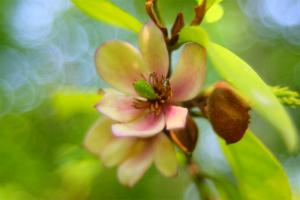Do Flies Lay Eggs in Potted Plants?
Potted plants are a great way to add a touch of nature to any indoor or outdoor space. However, they can also provide an ideal breeding ground for insects like flies. But do flies lay eggs in potted plants? Let’s take a closer look.
What You Need to Know About Flies
Flies are insects that belong to the order Diptera. There are over 120,000 species of flies around the world, and they come in various shapes, sizes, and colors. One common characteristic of flies is their ability to lay eggs in a variety of environments, including potted plants.
How Do Flies Lay Eggs?
Most flies lay their eggs on organic matter, such as a decaying animal or plant material. When it comes to potted plants, adult flies lay their eggs on the soil surface, where it is warm and moist. The eggs hatch into larvae, which burrow into the soil and feed on the organic matter surrounding the plant roots.
What Are the Risks of Flies in Potted Plants?
While flies in potted plants may seem like a minor inconvenience, they can actually pose several risks. These include:
Damage to plant roots: Fly larvae can cause damage to plant roots, which can affect the overall health and growth of the plant.
Spread of disease: Flies can transmit diseases to both plants and humans. For example, the whitefly can transmit viruses that cause plant diseases, while the housefly can carry bacteria that cause illness in humans.
Attracting other pests: Flies can attract other pests, such as spider mites, that can further damage plants.
How to Prevent Flies in Potted Plants?
If you want to prevent flies from laying eggs in your potted plants, there are several steps you can take:
Use sterile potting mix: Avoid using soil from your garden, as it may contain insect eggs or larvae. Instead, use sterile potting mix from a garden center.
Avoid overwatering: Flies are attracted to moist environments, so be careful not to overwater your plants.
Clean up fallen leaves and debris: Removing fallen leaves and debris from the top of the soil can reduce the fly’s food source and discourage them from laying eggs.
Use natural repellents: Some plants, like lavender and mint, are natural fly repellents. You can also use essential oils, such as eucalyptus or cedar, to repel flies.
Conclusion
In conclusion, flies can lay eggs in potted plants, which can pose a risk to both the plant and human health. However, by taking preventative measures, you can reduce the risk of fly infestations and keep your potted plants healthy.

 how many times do yo...
how many times do yo... how many planted tre...
how many planted tre... how many pine trees ...
how many pine trees ... how many pecan trees...
how many pecan trees... how many plants comp...
how many plants comp... how many plants can ...
how many plants can ... how many plants and ...
how many plants and ... how many pepper plan...
how many pepper plan...
































